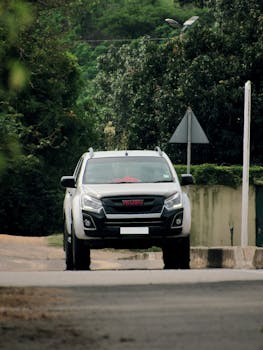Car Insurance Claim Rejected? Here’s How to Fight Back in South Africa
Dealing with a rejected car insurance claim can be incredibly frustrating, especially when you depend on your policy to help you during tough times. In South Africa, insurers have specific protocols for processing claims, but mistakes and misunderstandings can happen. If your claim has been denied, it’s essential to know your rights and the steps you can take to challenge this decision.
Understanding the Reasons for Claim Rejection
Before you can effectively fight back against a rejected claim, it’s important to understand why your insurer may have turned it down. Common reasons for claim rejection in South Africa include:
- Insufficient Documentation: If you failed to provide all necessary paperwork, your claim could be denied.
- Policy Exclusions: Your policy may have specific exclusions that apply to your situation, such as driving under the influence or using the vehicle for commercial purposes.
- Non-Disclosure of Information: If you didn’t disclose relevant information when taking out the policy, this could lead to a rejection.
- Late Notification: Most insurers require that claims be reported within a specific timeframe. Failing to notify your insurer promptly can result in a denial.
Understanding these reasons can help you prepare your argument and gather the necessary evidence to challenge the insurer’s decision.
Steps to Challenge a Rejected Car Insurance Claim
If your car insurance claim has been rejected, don’t lose hope. Here are effective steps you can take to fight back:
1. Review Your Policy
The first step is to thoroughly review your insurance policy. Look for the sections that outline the coverage, exclusions, and the claims process. This can help you understand whether the insurer’s decision was justified or if there are grounds for an appeal.
2. Gather Supporting Documentation
Compile all necessary documents that support your claim. This includes:
- Incident reports (from the police and other parties involved)
- Photographic evidence of the accident or damage
- Witness statements
- Correspondence with your insurer
Having a well-documented case can significantly strengthen your position when challenging the rejection.
3. Contact Your Insurer
Once you have reviewed your policy and gathered your documents, reach out to your insurer. It’s advisable to do this in writing, outlining your concerns about the rejection. Be clear and concise, referencing specific policy clauses and providing supporting evidence. Remember to keep a record of all communications.
4. Escalate the Matter
If your initial appeal doesn’t yield results, don’t hesitate to escalate the matter. Most insurance companies in South Africa have a formal complaints procedure. You can find this information on their website or in your policy documentation. Follow the procedure carefully and provide all the required details.
5. Involve the Ombudsman for Short-Term Insurance
If you’ve gone through the internal complaints process and still feel unsatisfied, the next step is to involve the Ombudsman for Short-Term Insurance. This independent body helps resolve disputes between insurers and policyholders. You can submit a complaint online, and they will investigate the matter impartially.
6. Seek Legal Advice
If all else fails, consider seeking legal assistance. A lawyer specializing in insurance claims can provide guidance on the best course of action. They can help you understand your rights and, if necessary, represent you in legal proceedings. Legal action may involve a lengthy process, but it can sometimes be the only way to secure what you’re entitled to.
Real-World Examples of Successful Claims
Many South Africans have successfully contested rejected claims. For instance, a client of a prominent South African insurance company had their claim denied due to alleged non-disclosure of a prior accident. After reviewing their documentation, it was clear that the insurer had not taken into account the full context of the situation. The client escalated the claim to the Ombudsman and provided additional evidence, leading to a favorable outcome.
Know Your Rights as a Policyholder
As a car insurance policyholder in South Africa, you have specific rights. The National Economic Development and Labour Council (NEDLAC) outlines consumer rights, including:
- The right to be treated fairly and honestly by your insurer.
- The right to receive clear information regarding your policy and claims process.
- The right to appeal decisions made by your insurer.
Understanding these rights empowers you to take action and ensures that you are not taken advantage of in the event of a claim dispute.
Preventive Measures for the Future
While it’s important to know how to fight a rejected claim, preventing such issues in the future is equally vital. Here are some tips:
- Be Transparent: Always provide complete and accurate information when applying for insurance.
- Understand Your Policy: Familiarize yourself with the terms and conditions of your policy, including exclusions and limits.
- Document Everything: Keep records of all communications, claims, and any incidents involving your vehicle.
By taking these preventive measures, you can reduce the likelihood of encountering issues with your car insurance claims in the future.
FAQ
What should I do if my car insurance claim is rejected?
If your claim is rejected, review your policy, gather supporting documentation, contact your insurer, and follow their complaints procedure. If necessary, escalate the issue to the Ombudsman for Short-Term Insurance.
How long do I have to contest a rejected claim?
You typically have a limited time to contest a rejected claim, usually within a few months. Check your policy for specific timelines.
Can I take legal action against my insurer?
Yes, if you believe your insurer has acted unfairly or unlawfully, you can seek legal advice and potentially take legal action.
What kind of evidence is useful in contesting a claim?
Photographic evidence, witness statements, police reports, and any correspondence with your insurer can be valuable in contesting a claim.
Being proactive and well-informed can help you navigate the complexities of car insurance claims in South Africa. Remember, you have the right to challenge a rejection and pursue what you are entitled to under your policy.

